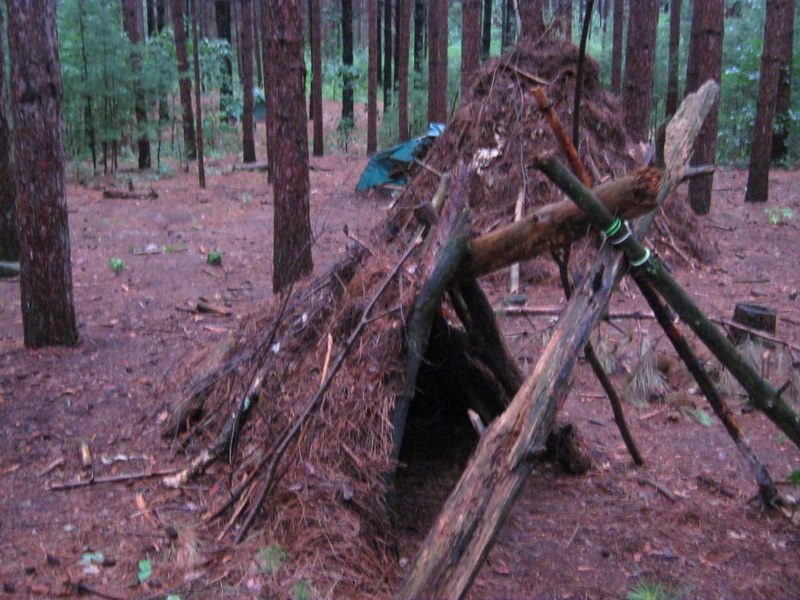Wilderness Survival Shelters
There are a few basic considerations when creating a shelter. If possible, select a site that is neither high nor low. High areas are often exposed to strong winds, and low areas tend to be where cold air will settle during the night. Don’t forget to look up and check for dead trees and limbs. Falling trees injure or kill more people than you may think. Avoid animal trails. There’s no sense having your sleep interrupted by foraging animals. Check for insect activity, particularly ants, hornets and wasps. Also avoid dry (or wet) creek beds. These areas can be flooded without warning.
The ground will account for a significant loss of your body’s heat when lying on it. Always make a 12"-15" bed of dry grass, boughs, leaves or pine needles when preparing to sleep. A few heavy-duty garbage bags stuffed with dry material of this type can also be used as a mattress, pillow or blanket.
A major factor in preventing the loss of your body’s heat is staying dry. Moisture conducts heat more rapidly than dry air and will result in accelerated heat loss. Proper clothing is your first layer of shelter. Remember the old adage – cotton kills. Well, actually, it absorbs and retains moisture, accelerating heat loss. Even if it doesn’t kill, it’s miserable trying to make your way home with soaking wet jeans that seem to weigh ten pounds.
You can, of course, improvise a shelter from natural materials if you know how and have the time. Look to nature for help. Rock overhangs, caves and overturned trees are classic starting points. Add and intertwine fallen limbs, vines, evergreen boughs, bark or anything else that’s handy to form a lean-to or an A-frame shelter. Always remember to keep your shelter small so that your body heat stays contained.
If you are lost, a shelter will not only provide protection from the elements but will also improve your state of mind. Everyone needs a base of operation, a place to rest and a sense of home, especially in a dire situation.

